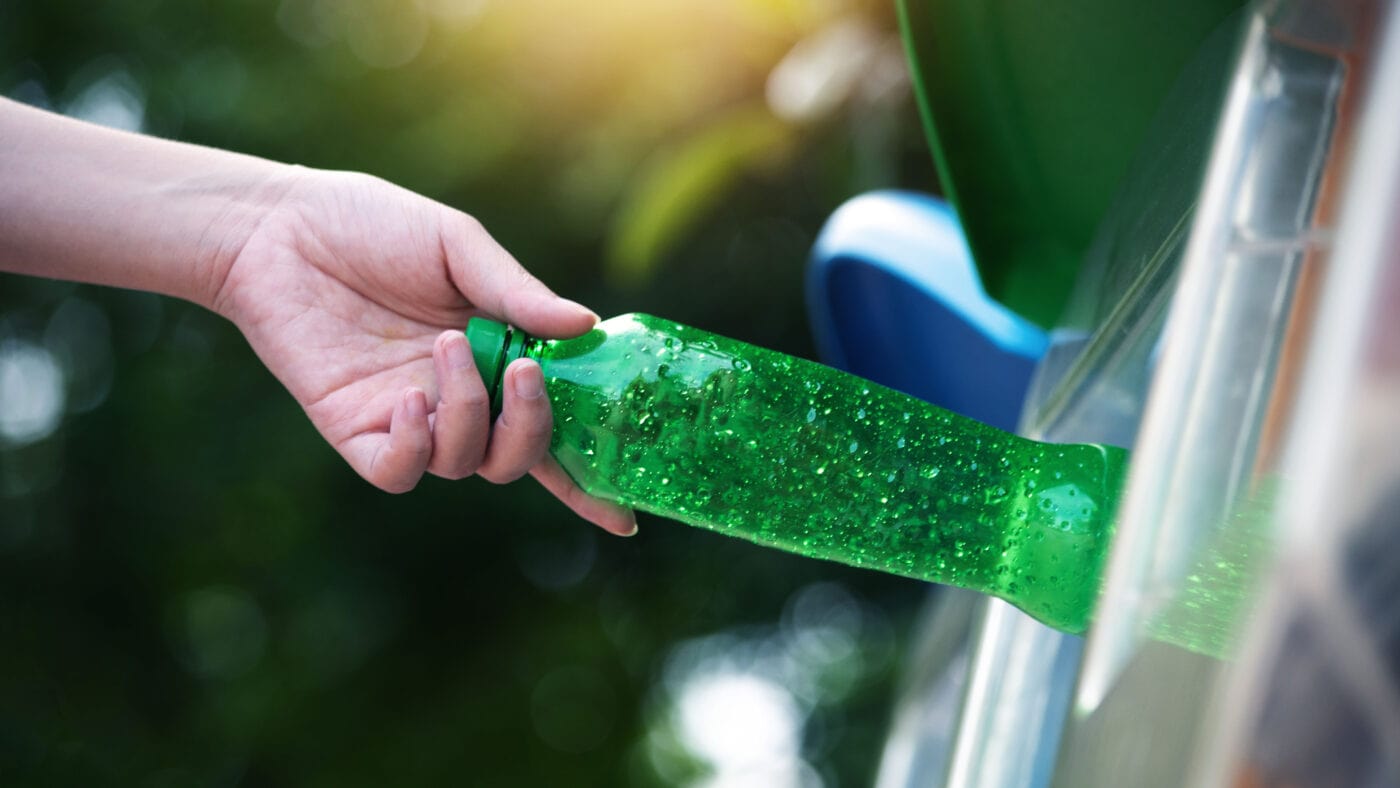In less than six months, the Scottish Government will introduce a new deposit return scheme, despite the industry asking for a UK-wide one. It aims to increase recycling and reduce litter – common sense goals we all support. But the scheme has become a costly, complex and confusing mess before its even got off the ground. So, what’s gone wrong?
The concept behind the scheme is simple enough. Scottish consumers will pay an extra 20p for every drinks container they purchase and then get the money back when they return it for recycling. Similar schemes already operate across the world, but none have been introduced with an advanced kerbside recycling system. In their rush to be first in the UK, the Scottish Government has pushed through a poorly planned scheme that businesses are finding unworkable.
The Scottish scheme hasn’t been designed to work with the rest of the UK, and therefore drinks producers will need to invest time and money in unique Scottish labels or pay a surcharge to use UK-wide labels. That’s after they stump up fees for every drinks container they place on the market and deal with the potentially impossible task of obtaining Scotland-specific sales data within the UK. Unsurprisingly, small producers face the biggest challenge in absorbing these costs and are amongst the most vocal in raising concerns.
Larger producers will also be liable for any delays to launch – potentially paying up to £1.5m per month. Given that the scheme has already been delayed twice and the Scottish Government’s own review said it couldn’t be fully implemented by August, you can see why producers are worried about signing up. Of course, if they don’t sign, they can’t sell their products in Scotland.
As a sign of how badly things are going, many businesses are deciding to withdraw products. The Scottish Wholesale Association estimates that product ranges in Scotland could shrink by as much as 40%.
Retailers face major challenges, too. For starters, there is no operational blueprint, and key information is still missing, such as how prices will be displayed. Effectively, retailers are being forced to take the best guess at compliance. Then there are the costs, such as forking out thousands of pounds for reverse vending machines to collect containers. The big retailers can secure good prices on those, but again, the smaller firms will struggle just as they will struggle if they apply for an exemption from the scheme – potentially losing footfall to rivals who do operate return points.
All retailers will have to set aside valuable retail space to store the returned containers until they are collected. That’s more road journeys collecting waste on top of existing council collections – hardly a great environmental outcome. Nor would it be great for Scotland’s already poor recycling record if councils end up reducing their collection services, as seems to be the case.
To help cover costs, the scheme administrator, Circularity Scotland, will pay retailers a handling fee. Only, the handling fee looks like it won’t fully cover costs – and that’s despite a recent increase.
It seems inevitable those costs will end up being passed onto consumers – in the middle of a cost-of-living crisis, no less. Industry figures have told me they estimate increases of 30-40p per drink – consumers will, of course, only get back the 20p deposit portion of that.
For those living near the border, a trip to cheaper English stores would make a lot of sense. Whilst they’re buying drinks, they might just decide to do their weekly shop there, too – taking more money out of local economies. The economic harm doesn’t stop there though. By their own estimates, the Scottish Government predict the scheme will create more than £100 million worth of fraud.
It didn’t need to be this way. The Scottish Government have had years to plan and prepare – Nicola Sturgeon first announced the scheme in 2017. Instead, they have adopted their usual ‘we know best’ attitude, pretending the scheme is industry-led whilst more than 600 businesses sign an open letter voicing their concerns.
That attitude is all the more frustrating because businesses are hugely supportive of the goals behind the scheme. If the Scottish Government could put the environment before their pride, we could start fixing the problems. Which is why MSPs from all of Scotland’s major parties, including the SNP, have now called for the scheme to be paused and an urgent and independent review carried out.
A successful Scottish deposit return scheme could be an example to the world. The way things are going though, it will be an example of what not to do. There is still time to salvage the situation and deliver a successful scheme for Scotland and one that is compatible and harmonised across the UK.
Click here to subscribe to our daily briefing – the best pieces from CapX and across the web.
CapX depends on the generosity of its readers. If you value what we do, please consider making a donation.


